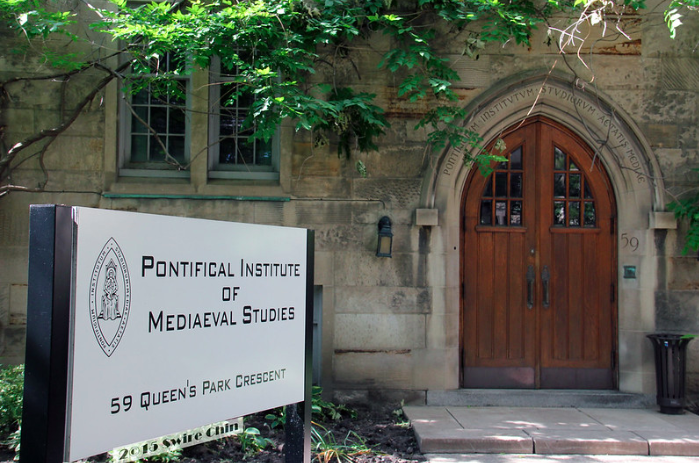Photo Credit: Can Pac Swire, Flickr
A recent memorandum between St. Mike’s, PIMS, and U of T reaffirms historical ties and promotes collaboration
Jennifer Zhong, The Mike Staff Writer
A new memorandum of understanding (MOU) between the University of St. Michael’s College (USMC), the Pontifical Institute of Mediaeval Studies (PIMS), and the University of Toronto (U of T) seeks “to improve communication between these three centres of mediaeval scholarship and to explore practical opportunities for cooperative undertakings that will support students, faculty, and community members,” David Sylvester, President and Vice Chancellor of USMC told The Mike in an interview.
The three institutions
The USMC Mediaeval Studies program uses an interdisciplinary approach and is sponsored by the Faculty of Arts & Science. Majors and minors in the subject are offered to all undergraduate students and courses are taught by professors from both USMC and U of T, and sometimes by PIMS Mellon Fellows.
The University of Toronto’s Centre for Mediaeval Studies (CMS) was established in 1964 and offers M.A. and Ph.D. programs to graduate students. Although it does not have its own publication house, it sponsors several book series and journals every year, primarily published through the University of Toronto Press (UTP) and the PIMS Press.
The PIMS is the oldest humanities research institute in Canada and was founded in 1929, before being granted Pontifical status in 1939. Despite being physically located on the USMC campus, it remains its own independent institution and runs its own printing press. Unlike USMC and CMS, PIMS is a post-doctoral institute and accepts new Mellon Fellows from around the world for research projects every year.
History of collaboration
PIMS has always welcomed undergraduate and graduate students from USMC and U of T into its community. Not only does it offer teaching and office space to USMC professors and students, but also its common room for various functions. In addition, many of PIMS’ Mellon Fellows teach undergraduate courses at USMC, with graduate students from CMS as Teaching Assistants (TAs), allowing for fresh ideas and approaches every year.
One example of this spirit of collaboration is the weekly PIMS afternoon tea, which welcomes both current and retired scholars and students from PIMS, USMC, and CMS. It encourages dialogue and exchange between members of the community and breaks down the barrier between professors and students in a more casual setting.
What changes will the memorandum bring?
With the new MOU, each signatory will remain their own distinct body, but it formalizes a long-standing relationship between them. The MOU also represents their commitment to work together to further engage with the mediaeval period, building upon the natural relationship that undergraduate, graduate, and post-doctoral programs should have. Furthermore, the MOU notes that the PIMS library, a repository library with rare, non-circulating works on everything from paleography to Latin will remain on the 4th floor of the John M. Kelly library at USMC. Sylvester notes to The Mike that “[the PIMS library] is already open to mediaeval scholars from across campus and around the word. We hope to continue its preeminent role as a world-class research library.”
The MOU further “establishes these institutions, [which places Toronto] as a powerhouse for mediaeval studies,” said PIMS Mellon Fellow Kenneth Duggan, Ph.D., in an interview with The Mike. He continued, “Unlike a lot of other institutions who would have very prestigious academics or institutions for mediaeval studies, ours are open to all students.”
Although the exact result of this cooperation is not yet clear, the general outlook by the community is very positive. Joint conferences, increased TA opportunities, and improving pathways to graduate studies are all likely outcomes of the MOU. One thing for certain is that USMC students can look forward to increased opportunities for learning, research, and seminars within the study of the Middle Ages.



